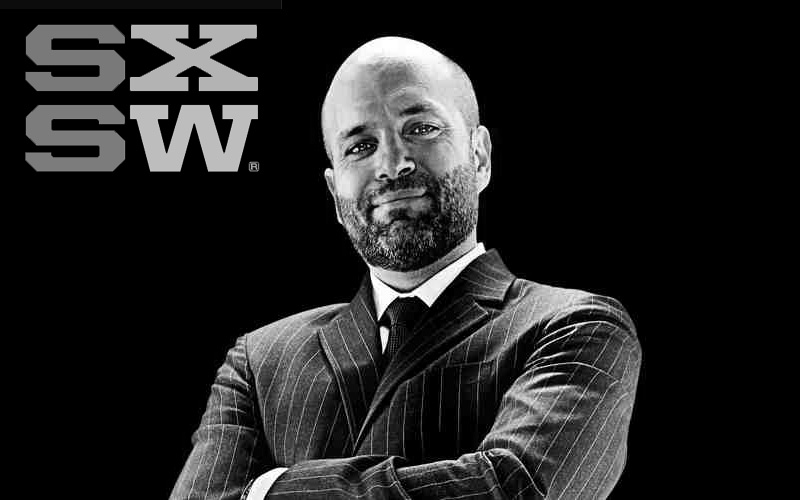Michael Sanzen is partner, chief creative officer, Concentric Health Experience writing for MM&M
I left SXSW feeling like I just might live forever.
And, as an owner of a health-focused ad agency, I left wondering how I need to change my business to ensure I can fund this newfound longevity. What’s radically different is that the days of managing decline are over—or at least, decline is no longer the focus of healthcare. Health management has taken the offensive.
Tech enables a proactive approach to avoiding illness and staying healthy. And, in the process, tech is opening up a whole new market for those who make a living in health and wellness.
The “circle of health” is very close to complete
The palpable message at SXSW this year is that when medicine, diagnostics and behavior connect, amazing things can happen. We’ve always known this, and, as an industry, we’ve spent a lot of money on screening and adherence programs.
But, as we also know, it’s been a losing battle. The medicine has been impressive, but getting it to the right people and helping them stick with treatment has been a challenge. But, from what I saw on the exhibit floor this past week, tech is about to change everything.
Each part of the circle is strengthened when technology is applied
Medicine: Here I include all the tools at our healthcare professional’s disposal—drugs, devices, instruments, etc. It’s fair to say that this part of the circle is pretty impressive already. Still, limitations are everywhere.
But, as I listened to physician Jim Olson, a pediatric oncologist and inventor of TumorPaint, I began to feel like the limitations were almost behind us. MRI does a great job identifying cancer cells before surgery. During surgery, however, it’s very difficult to distinguish good cells from bad. TumorPaint is a technology about 100,000 times more sensitive than an MRI that helps surgeons better differentiate between cancerous and healthy tissue by literally lighting up the cells that need to be removed.
Diagnostics: This is the gap in the circle we all expected tech to fill. Dr. Leslie Saxon gave a talk called “The Future of Networked Humans” that focused on the power of unlocking our own physiologic data.
Today, we take snapshots of our health. But even these come with caveats: your blood sugar is high, but maybe it’s that bagel you ate this morning. Dr. Saxon discussed wearable diagnostic devices that continuously monitor our vitals and pave the way to a world where, among other advantages, our health can be managed and treated remotely.
A SXSW diagnostic standout was Pixie Scientific. Its product Smart Diapers is designed to unobtrusively monitor a child’s health and detect the onset of serious conditions before symptoms appear. The data are captured in the parent’s phone and can be easily sent to a pediatrician for analysis if needed.
Behavior: As humans, we’ve proven time and time again we can’t do right by ourselves when it comes to health. Even patients on immunosuppressant therapies after an organ transplant stop taking their medication at an alarming rate.
Helping us modify our behavior is where health tech gets really interesting. A great example is ThriveOn, a company out of San Francisco with an interesting approach to mental health care.
They’ve created a mobile platform that pairs a patient with a remote mental health professional. We’ve got some great pharmacologic solutions to conditions like depression, but constant access and intervention from a “mental health coach” is the piece that can really help us turn the corner.
Another SXSW standout, this one in the behavior area, was AdhereTech. Some of its tech solutions were extremely simple and straightforward in their brilliance.
AdhereTech has created patented smart pill bottles that automatically send usage data to their servers in real time. If a dose is missed, the system alerts patients via text message, phone call, and on-bottle lights and chimes.
What does all this mean for healthcare marketers?
Once we accept the truth, we’ll see rapid and profound change. And here’s the truth: we can’t help anyone unless we deliver “the circle.” The complete circle.
Until now, completing the circle been too difficult and expensive, but health tech is changing everything. And, if you consider how innovation has transformed other aspects of our lives, it’s not unreasonable to imagine that an entirely different world is just a few years away.
As marketers of health and wellness solutions, the programs we build will have just as profound an effect on people’s lives as the medicines themselves…maybe even more. These are exciting times.
Source : http://www.mmm-online.com/sxsw-key-takeaways-for-healthcare-marketers/article/338348/




